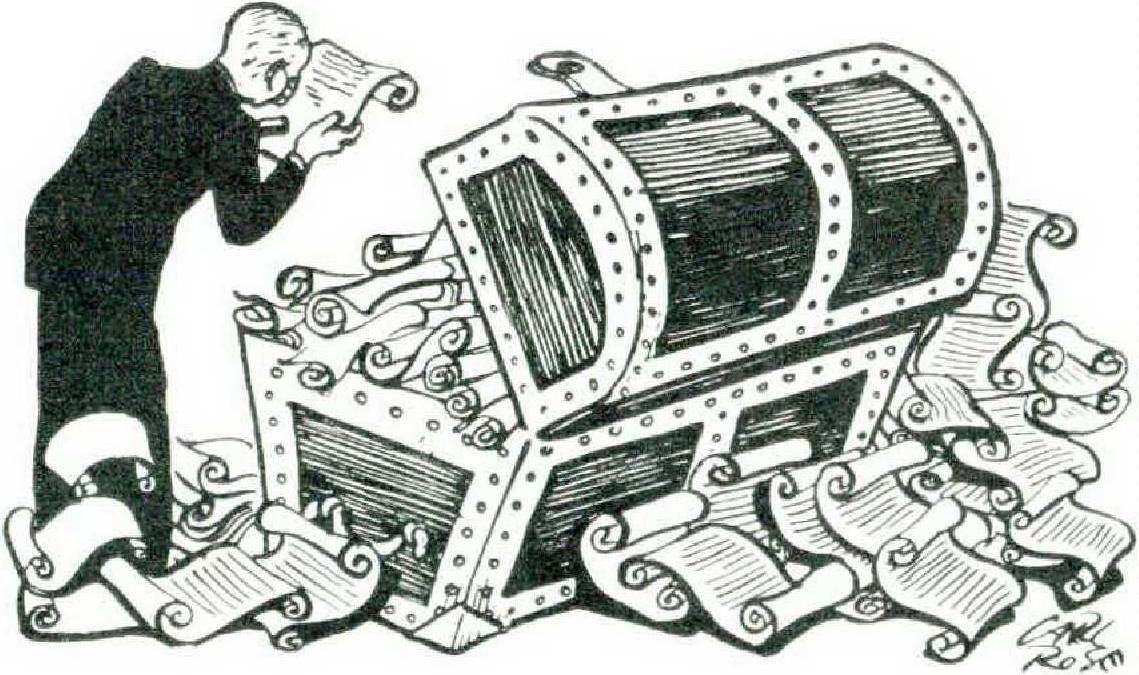


Midway through the war, the Editor of the Atlantic opened up in these pages a new department. It would concern itself not with killing but with living. While larger matters would be accounted for elsewhere in the Atlantic, these pages would try out the lighter, the lesser, the frivolous. A recipe for roasting a leg of lamb might not wag the world, but people were still eating — after a fashion — and our recipe was a good one. We could hardly expect to shape the peace by attacking quiz programs and soap operas, yet our contributors have given them a passing kick, just on general principles.

I say our contributors, because these pages have been turned over to so many of them and their quite unpredictable subjects. In one field or another — theater, music, fine arts, cookery, travel, journalism, and a wide area of miscellany — the ranks of Accent on Living writers now number upwards of 225. A fair sprinkling of college students and veterans joined up. We have published businessmen and retired businessmen. Our youngest author was aged thirteen. The men, we know not why, outnumber the women by three to one. At least half the listings in these pages have been first appearances in print by newcomers, and our main search is still for the fresh talent, the nonprofessional, especially among Atlantic readers. It baffles us to realize that the most carefully read and provocative subject to appear thus far in Accent on Living was Clyde Brion Davis’s set of doubts that horses are faithful animals or that they have any sense at all. We mention this fact for the guidance of prospective contributors but with little or no understanding of why it is so.
Wines and wine tasting have always given rise to much legend and nonsense, especially in this country, where the produce of France is usually too dear for frequent experiment. One school holds that the whole thing is bosh, that one wine is just like the next, and that none is worth identifying. A belligerent member of this group once told me that he had refilled, from a jug, two Chateau Margaux bottles and “nobody knew the difference,” although he seemed to ignore the probability that most guests reserve their tirades for the ride home and do not accuse the host at his own table. This episode alone convinced him that wine is a fake and that those who profess to enjoy it are frauds. The other school regards wine as too intricate a cult, believes too much of it, and, believing, despairs of ever mastering so many rules and regulations. Both groups are bound by a common suspicion that vintages, regions, and marks are an artful scheme thought up by the French for the exploitation of honest foreigners.
The candor of Henry Hollis’s “Wine Magic” (page 129) should enable skeptics to re-examine the subject. His advice about labels recalls the cynical bridge player’s remark, “A good peek is better than a poor finesse,”but those who have sampled Hollis “selections” over the years know that his expertness results from far more than meets the eye. As for the French, they have too genuine a respect for the pleasures of the table and for hard cash to tamper with the verities of food and drink. A French waiter once lifted an eyebrow at me and held up a siphon when I ordered a split of Vichy for a man whose taste would have been just as well served, the waiter felt, by seltzer. Such a waiter, and his compatriots at home, would never wish to provide fine wines for the undeserving palate, and they would be equally opposed, I feel certain, to any labeling masquerade in which meaner potions were palmed off as the great wines of France.
Munitioning a cellar involves, to be sure, a certain amount of self-denial en route, a willingness to forgo the present pleasure for greater blessings to come. But the maturing of a good wine in one’s own home is one of the few consolations to be derived from the passing of time. The proprietor may be a year older, but his cellar is a year better. There are other important implications in laying out money and putting down wines for use in the distant future. It implies, in such a mess of a world as we live in today, a fine self-assurance, confidence in things to come. It means that the householder expects to continue to live comfortably, and to lack neither the good health nor the friends to enjoy the wine at its peak ten or twenty years later. For those who may be buying French wines within the next year or two, we can report that 1945 is agreed to be the best year in decades. The ‘45s, it seems, will be the vintage so casually consumed by characters in the Angela Thirkell novels of 1970 and recollected years later by Saintsburys as yet unborn.
C. W. M.
